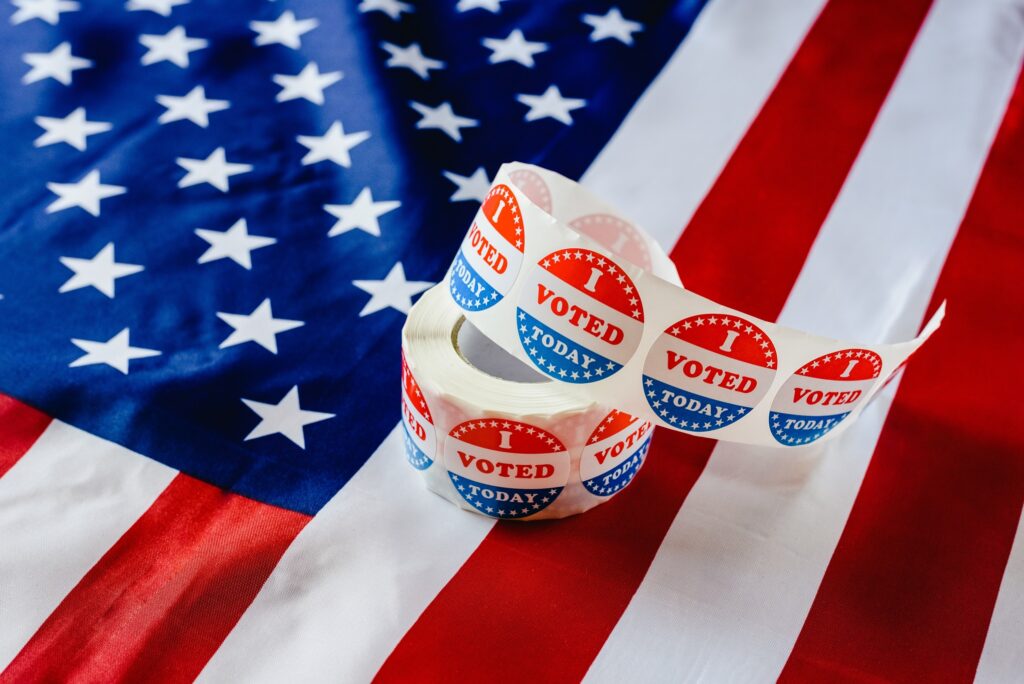Testimony: Occupational Licensing: Regulation and Competition
U.S. House Committee on the Judiciary
Subcommittee on Regulatory Reform, Commercial and Antitrust Law
“Occupational Licensing: Regulation and Competition”
Sept. 12, 2017
Chairman Marino, Ranking Member Cicilline and Members of the Committee:
Thank you for considering our written statement. We are Jarrett Dieterle and Shoshana Weissmann, and we are, respectively, governance project fellow and policy analyst at the R Street Institute, a free-market think tank based in Washington, D.C. Since its inception, the R Street Institute has written extensively about occupational licensing—most prominently about its intersection with criminal justice and commercial freedom issues.
While licensing has long been used as a form of economic regulation, the practice became more common in the United States in the 19th century, by which time many states were licensing professions as distinct as medicine and ferry operating. The practice gained even more prominence in the wake of the U.S. Supreme Court’s 1889 decision in Dent v. West Virginia,[1] which upheld a state licensing system for doctors and ushered in an era of courts upholding licensing regimes around the country.[2] Today, nearly one-third of all workers are required to obtain the government’s permission in order to work.[3] Legal scholar Paul Larkin perhaps put it best by concluding that “the arc of history has tended toward the licensing of an ever-larger number of professions.”[4]
Proponents of occupational licensing often seek to justify it on grounds that it is necessary for public health and safety—for example, by ensuring that all doctors have the knowledge, training and skills to perform procedures safely that could cause great harm if performed by someone without proper training. However, it is clear that many licensing requirements have little or no connection to health and safety. Consider that the average cosmetologist spends 372 days in training, compared to 33 days for most emergency medical technicians.[5] This disparity suggests something else is at work besides health and safety concerns.
Too often, licensure functions as an unnecessary and harmful barrier to entry for individuals hoping to join licensed professions. This burden falls especially hard on lower-income individuals who want to establish themselves in a career, but lack the time and resources to obtain the necessary licensure. Compounding the problem, the incumbent members of many licensed occupations intentionally use stringent licensing requirements as a form of economic rent seeking. The more difficult it is for new members to join a given profession, the less competition incumbent members of the profession will face.
In recent years, there has been growing bipartisan concern about the burdens of occupational licensing, which has raised hope for reform efforts. Both the previous and current administrations have focused on the issue,[6] and governors from across the ideological spectrum have pursued reform in their respective states.[7] Unfortunately, despite this cross-ideological agreement, there has been no broad scale, systematic repeal or delicensing movement across the 50 states. According to a review conducted by the Bureau of Labor Statistics, there have only been eight instances of occupations being fully delicensed at the state level in the past 40 years.[8] We therefore face a sort of stalemate with little in the way of sustained progress.
Although most occupational licensing laws are at the state level, the federal government can play a modest, yet crucial, role in helping to push reform.[9] The Restoring Board Immunity Act would be an important first step toward breaking the licensing stalemate.
Specifically, the act would clarify an important issue in federal antitrust law that could have significant implications for the future of licensing. Concerns about monopolistic and anticompetitive behavior were the impetus for modern antitrust law. But despite often engaging in such behavior, licensing boards traditionally have been exempt from antitrust under the so-called “state action doctrine,” which shields state governments (and licensing boards operating under government auspices) from antitrust liability.
In the 2015 case N.C. Board of Dental Examiners v. FTC,[10] however, the Supreme Court held that a state dental board in North Carolina violated federal antitrust law because it was not actively supervised by the state government and was comprised of self-interested market participants. While many reformers hoped the court’s decision to limit the state action doctrine would usher in an era of state-initiated overhauls of licensing boards, many states have responded simply by adding additional layers of bureaucratic oversight to their licensing regimes, rather than engaging in comprehensive revamps. Some commentators have dubbed these watered-down reforms “slower crony capitalism.”[11]
The Restoring Board Immunity Act is designed to address this dissatisfying status quo by laying out a roadmap states can follow to receive antitrust immunity for their licensing boards in exchange for real, substantive reforms. The act clarifies that state licensing boards will not be subject to antitrust violations if they enact certain reforms to allow either active state government supervision or robust judicial review of licensing laws. The carrot of unlocking antitrust immunity—along with a roadmap of accountability and oversight to ensure such immunity—could encourage states to restructure their licensing boards and prevent them from acting as self-interested cartels that block new market entrants. Most importantly, the bill’s structure remains respectful of federalism by leaving states with the choice of whether to pursue reform.
Although we find merit in both antitrust immunity options laid out in the act, we wanted to highlight Section 6’s judicial review provisions as particularly worthwhile. Section 6 of the act would allow state licensing boards to unlock antitrust immunity if, among other reforms, state law clarifies that licensing requirements cannot be imposed unless the government identifies an “important government interest” in protecting health and safety, and the licensing requirement is “substantially related” to that interest. It also would require states to create a cause of action that would allow individuals to challenge enforcement of a state occupational licensing law and provides for reimbursement of attorney’s fees and costs should the challenge prove successful.[12]
Of crucial importance, the bill goes on to clarify that state courts should not be permitted to uphold licensing laws in a judicial challenge “simply because the court believes the law is rationally related to a legitimate government purpose.” Further, courts should not “rely on hypothetical risks to public safety,” “defer to factual or legal conclusions” of another entity rather than exercising independent review, or “rely on a post hoc justification for the action of an occupational licensing board that was not put forward at the time of the challenged action.”[13]
This clarification of the burden of proof could have a marked impact on how courts around the country review licensing laws. Many courts simply defer to a board or legislature’s determination that licensure is necessary to protect the public well-being, no matter how dubious the purported justification. In other words, courts err on the side of government, rather than objectively evaluating the credulity of the government’s claims.[14] This is because courts in modern times have afforded economic liberty rights—such as the right to pursue an occupation—a lesser level of protection under the law, known as “rational basis” review.[15]
Like the language in Section 6 of the bill, rational basis review asks whether a law is “rationally related” to a “legitimate” government interest. As legal scholars such as Randy Barnett have noted, however, rational basis review is more watered down in practice. Infringements on economic liberty are routinely upheld so long as a court can “identify any hypothetical reason for why a legislature might have enacted the restriction.”[16] As scholar Timothy Sandefur has explained, in some rational basis cases, “the plaintiff is required to disprove purely hypothetical, even absurd rationalizations for the law—even rationalizations the legislature did not have in mind when it passed the restriction on freedom.”[17]
This is despite historical evidence that the original meaning of the U.S. Constitution never contemplated that certain rights—even unenumerated ones, like the right to pursue an occupation—would be protected with less vigor than others.[18] As Barnett and others have further documented, courts historically did not exhibit this level of extreme deference to state legislatures (or agencies such as licensing boards). Rather, they conducted independent reviews of the economic regulation at issue.[19]
Requiring courts to probe the real justifications behind a particular licensing law—and not just defer to a legislature or licensing board regarding its necessity—would lead to unnecessary and arbitrary licensing laws being struck down by courts with more regularity. This reform alone would establish a noteworthy change in the current occupational licensing arena and provide an important check on the proliferation of state licensing laws.
For the reasons discussed above, the Restoring Board Immunity Act should be seen as a worthwhile step forward in the effort to reform abusive occupational licensing. However, it is far from the only way the federal government could make an impact. For more suggestions on how the federal government could assist in the effort to break the occupational licensing stalemate—while still respecting the principles of federalism—we have attached a recent article we wrote on the subject.
We hope the committee will move forward with the Restoring Board Immunity Act, as well as consider other legislative options to reform occupational licensing laws at the federal level. Thank you for your consideration of our views and the opportunity to submit this statement.
[1] Dent v. West Virginia, 129 U.S. 114 (1889).
[2] Paul J. Larkin, “A Brief History of Occupational Licensing,” The Heritage Foundation, May 23, 2017, p.2, http://www.heritage.org/government-regulation/report/brief-history-occupational-licensing-0.
[3] Dick M. Carpenter II, Ph.D., Lisa Knepper, Angela C. Erickson and John K. Ross, “License to Work,” Institute for Justice, May 2012, https://www.ij.org/images/pdf_folder/economic_liberty/occupational_licensing/licensetowork.pdf.
[4] Larkin, “A Brief History of Occupational Licensing,” p. 3.
[5] Dick M. Carpenter, et al., “License to Work,” Institute for Justice, May 2012, p. 29.
[6] See, e.g., Department of the Treasury, Council of Economic Advisers, and Department of Labor, “Occupational Licensing: A Framework for Policymakers,” July 2015, https://obamawhitehouse.archives.gov/sites/default/files/docs/licensing_report_final_nonembargo.pdf; Sean Higgins, “Labor Secretary Alexander Acosta calls for occupational licensing reform,” Washington Examiner, July 21, 2017, http://www.washingtonexaminer.com/labor-secretary-alexander-acosta-calls-for-occupational-licensing-reform/article/2629390.
[7] See, e.g., Kelly O’Brien, “Will Massachusetts Take Obama’s Suggestion to Reform Professional Licensing?,” Boston.com, Feb. 3, 2015, https://www.boston.com/jobs/jobs-news/2015/02/03/will-massachusetts-take-obamas-suggestion-to-reform-professional-licensing; Bill McMorris, “AZ Gov Cracks Down on Occupational Licensing,” Washington Free Beacon, March 31, 2017, http://freebeacon.com/politics/az-gov-cracks-down-occupational-licensing/.
[8] Robert J. Thornton and Edward J. Timmons, “The de-licensing of occupations in the United States,” Bureau of Labor Statistics, May 2015, p. 3, https://www.bls.gov/opub/mlr/2015/article/pdf/the-de-licensing-of-occupations-in-the-united-states.pdf.
[9] Shoshana Weissmann and C. Jarrett Dieterle, “How the Feds Could Reform Crazy State Licensing Laws,” National Review, July 7, 2017, http://www.nationalreview.com/article/449268/occupational-licensing-needs-reform-here-are-some-federal-policies-could-help.
[10] N.C. Board of Dental Examiners v. FTC, 135 S. Ct. 1101 (2015).
[11] Steven J. Cernak, “Slower Crony Capitalism: The Immediate Aftermath of NC Board,” AntitrustConnect Blog, Aug. 19, 2015, http://antitrustconnect.com/2015/08/19/slower-crony-capitalism-the-immediate-aftermath-of-nc-board/.
[12] H.R. 3446, 115th Cong. § 6(b)(1).
[13] Ibid. § 6(b)(2).
[14] Evan Bernick, “When Courts Abdicate,” National Review, Jan. 20, 2015, http://www.nationalreview.com/article/396696/when-courts-abdicate-evan-bernick.
[15] See, e.g., Williamson v. Lee Optical of Oklahoma Inc., 348 U.S. 483 (1955); Powers Harris, 379 F.3d 1208, 1221-22 (10th Cir. 2004);
[16] Randy E. Barnett, “Judicial Engagement through the Lens of Lee Optical,” 19 Geo. Mason L. Rev., 845, 856 (2012).
[17] Timothy Sandefur, “Rational Basis Scrutiny Is Just a Stupid Rock,” Cato Unbound, Feb. 18, 2014, https://www.cato-unbound.org/2014/02/18/timothy-sandefur/rational-basis-scrutiny-just-stupid-rock.
[18] See generally Randy E. Barnett, “The Ninth Amendment: It Means What It Says,” 85 Tex. L. Rev 1 (2006).
[19] Paul J. Larkin, et al., “Economic Liberty and the Constitution: An Introduction,” Heritage Foundation, Special Report. No. 157, Oct. 1, 2014. http://www1.heritage.org/research/reports/2014/10/economic-liberty-and-the-constitution-anintroduction; Randy E. Barnett, Restoring the Lost Constitution: The Presumption of Liberty (Princeton: Princeton University Press, 2014), pp. 322-37.







